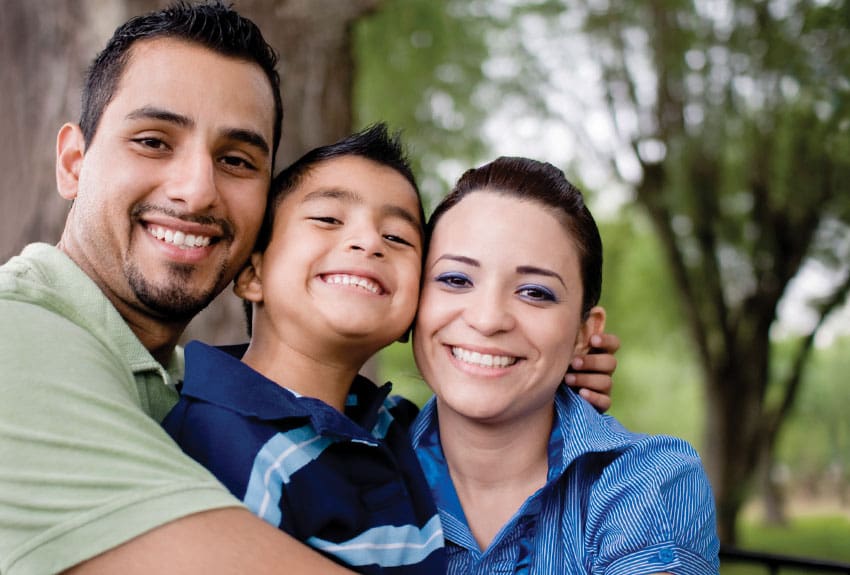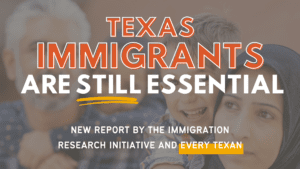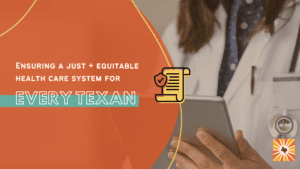In 2017, 4.9 out of 28 million Texans were born in another country, and over 1.8 million of those were naturalized U.S. citizens (according to the Migration Policy Institute).
5.6 million Texans live in a family that includes at least one non-U.S. citizen (of any immigration status). Policies that affect a family member who is not a U.S. citizen typically affect the entire family.
- About 1.9 million of these family members are kids ages 17 or younger, with the great majority—about 1.65 million—U.S. citizen children. That’s more than one in every four Texas children.
- 3.9 million of those Texans have family incomes under 250 percent of the federal poverty income, which in 2020 is less than $65,000 a year pre-tax income for a family of four.
Our state’s large immigrant population faces all the same barriers to health care and basic needs care as do U.S. citizens—plus an additional and complex list of exclusions.
Children seeking medical attention should be able to access health care without fear of deportation and separation from their families, but immigration officials have been detaining more people in such situations lately. Typical detentions include U.S. citizen children with one or more undocumented parents, though occasionally the child may also lack legal status. In years past, checkpoint staff accepted letters from the children’s hospital documenting the need for the child to access care, and families could get care. Recently, however, federal immigration officials have been inflexible and have insisted on taking parents and even children with medical needs into custody.
Under President Obama, the Department of Homeland Security adopted a policy that immigration agents (ICE and Customs and Border Protection) should avoid enforcement actions at hospitals, schools, churches, and public demonstrations unless there are special circumstances. However, this official guidance has been ignored on multiple occasions, often in Texas.
Across the U.S., advocates, business owners, educators, and other community members report that families are avoiding church and school functions, and that even shopping for basic needs is significantly depressed. Reporting of crimes is down. Use of formal Supplemental Nutrition Assistance Program (SNAP), Medicaid, and Children’s Health Insurance Program (CHIP) benefits are down as even U.S. citizens and lawfully present immigrants are afraid to access benefits in the wake of federal administration policy and messaging. Texas’ 2017 anti-immigrant law, SB 4, only adds to the anxiety here in Texas, as does word of these recent incidents.




